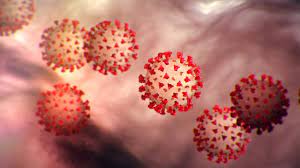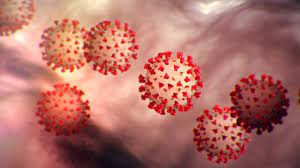
Recent research has claimed that the omicron variant of the coronavirus is unable to get past the second-line defense of the human body.
According to a new study, T cells, a crucial component of the immune system's second-line defense, are extremely effective in recognizing and fighting the Omicron variant, protecting most infections from advancing to serious illness.
The changes in Omicron allow it to evade antibodies, the body's first line of defense against infections. Other aspects of the immune system may still target Omicron, according to researchers, although there has been no evidence of this until recently.
Researchers in South Africa used test tubes to expose copies of the virus to T cells from participants who had gotten Johnson & Johnson or Pfizer/BioNTech vaccines, or who had never been vaccinated but had produced their own T cells following infection with an earlier form of the coronavirus.
"Despite Omicron's extensive mutations and reduced susceptibility to neutralizing antibodies, the majority of T cell response, induced by vaccination or natural infection, cross-recognizes the variant," the researchers reported this week on medRxiv ahead of peer review.
"Well-preserved T cell immunity to Omicron is likely to contribute to protection from severe COVID-19," which corroborates the precious suggestion of doctors form South Africa about most of the patients infected by the Omicron variant did not get seriously ill, they said.
The letter "T" stands for thymus, the organ in which the cells complete their development.
Another study has concluded that a booster shot of a Covid-19 vaccine brings down the risk of household transmission of the Omicron variant of the coronavirus.
New research suggests that the chance of vaccinated individuals contracting the virus if a member of the household gets infected is approximately three to four times higher with Omicron than with Delta, but booster doses lessen the risk.
Researchers looked at transmission data from over 12,000 infected households in Denmark, including 2,225 Omicron-infected households. In the week following the first infection in the residence, there were 6,397 secondary infections. The researchers revealed on Monday on medRxiv ahead of peer review that the rate of person-to-person dissemination of the virus to fully vaccinated people in Omicron households was around 2.6 times greater than in Delta households after accounting for other risk variables. They discovered that booster-vaccinated people in the Omicron households were roughly 3.7 times more likely to become sick than those in the Delta households.
However, when examining exclusively Omicron families, booster-vaccinated people were 56 per cent less likely to become sick compared to those who had not gotten a booster. In addition, in the case of people who had received a booster dose of a vaccine were the ones who had brought home the infection, it was less likely that such people would transmit the virus to others compared to those individuals who were unvaccinated or vaccinated but had not taken a booster dose in spreading the infection within the household.
(Source:www.moneycontrol.com)
According to a new study, T cells, a crucial component of the immune system's second-line defense, are extremely effective in recognizing and fighting the Omicron variant, protecting most infections from advancing to serious illness.
The changes in Omicron allow it to evade antibodies, the body's first line of defense against infections. Other aspects of the immune system may still target Omicron, according to researchers, although there has been no evidence of this until recently.
Researchers in South Africa used test tubes to expose copies of the virus to T cells from participants who had gotten Johnson & Johnson or Pfizer/BioNTech vaccines, or who had never been vaccinated but had produced their own T cells following infection with an earlier form of the coronavirus.
"Despite Omicron's extensive mutations and reduced susceptibility to neutralizing antibodies, the majority of T cell response, induced by vaccination or natural infection, cross-recognizes the variant," the researchers reported this week on medRxiv ahead of peer review.
"Well-preserved T cell immunity to Omicron is likely to contribute to protection from severe COVID-19," which corroborates the precious suggestion of doctors form South Africa about most of the patients infected by the Omicron variant did not get seriously ill, they said.
The letter "T" stands for thymus, the organ in which the cells complete their development.
Another study has concluded that a booster shot of a Covid-19 vaccine brings down the risk of household transmission of the Omicron variant of the coronavirus.
New research suggests that the chance of vaccinated individuals contracting the virus if a member of the household gets infected is approximately three to four times higher with Omicron than with Delta, but booster doses lessen the risk.
Researchers looked at transmission data from over 12,000 infected households in Denmark, including 2,225 Omicron-infected households. In the week following the first infection in the residence, there were 6,397 secondary infections. The researchers revealed on Monday on medRxiv ahead of peer review that the rate of person-to-person dissemination of the virus to fully vaccinated people in Omicron households was around 2.6 times greater than in Delta households after accounting for other risk variables. They discovered that booster-vaccinated people in the Omicron households were roughly 3.7 times more likely to become sick than those in the Delta households.
However, when examining exclusively Omicron families, booster-vaccinated people were 56 per cent less likely to become sick compared to those who had not gotten a booster. In addition, in the case of people who had received a booster dose of a vaccine were the ones who had brought home the infection, it was less likely that such people would transmit the virus to others compared to those individuals who were unvaccinated or vaccinated but had not taken a booster dose in spreading the infection within the household.
(Source:www.moneycontrol.com)














